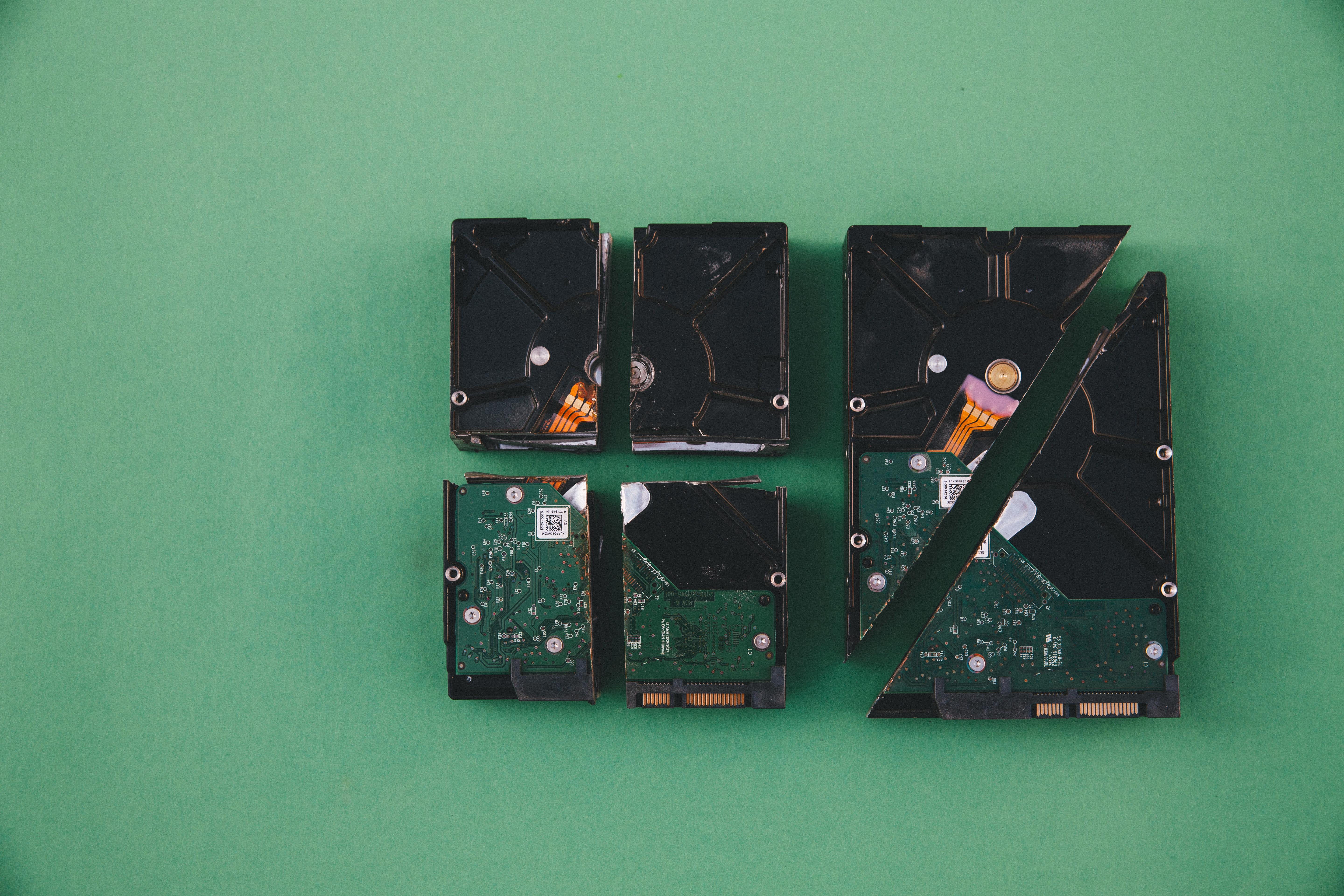Are you struggling with Windows 11 disk benchmark low scores that leave your PC feeling sluggish? Unlocking faster performance is essential for both gamers and professionals alike, but many users face the frustrating issue of low disk benchmarks. In this article, we will guide you through essential troubleshooting steps to enhance your system’s performance and get the most out of your hardware. You might be wondering, what can cause these disappointing results?
When it comes to Windows 11 disk performance, various factors can contribute to decreased benchmark scores. From outdated drivers to fragmented hard drives, the solutions might be simpler than you think. Have you checked your SSD health or considered optimizing your storage settings? In the quest for speed, understanding the underlying issues is crucial. By following our comprehensive troubleshooting tips, you can easily boost your disk performance and enjoy the seamless experience that Windows 11 promises.
Join us as we delve into the world of disk benchmarks and unveil the secrets to resolving those pesky low scores. With our practical advice and expert insights, you can transform your system into a lightning-fast powerhouse. Ready to say goodbye to sluggish load times and hello to enhanced productivity? Let’s get started on your journey to unlocking the full potential of your Windows 11 device!
Discover 7 Essential Tips to Boost Your Windows 11 Disk Benchmark Performance Today

Are you tired of your Windows 11 disk benchmark not performing as well as it should? You’re not alone. Many users faced this problem, but there are ways to troubleshoot Windows 11 disk benchmark low issues and discover ways to unlock faster performance. In this article, we explore 7 essential tips that will help you boost your disk benchmark performance today.
1. Check for Disk Errors
One of the first things you should do when disk performance drops is checking for errors. Windows has a built-in tool to scan for and repair disk problems. You can open Command Prompt as an administrator and type chkdsk /f, which will automatically fix errors on your disk. This step can significantly improve your disk performance.
2. Disable Unnecessary Startup Programs
Having too many applications start when Windows boots can slow down your system. You can manage startup programs by pressing Ctrl + Shift + Esc to open Task Manager, then going to the “Startup” tab. Disable any programs that you don’t need to launch at startup. This simple action can reduce load times and improve your disk benchmark.
3. Update Drivers Regularly
Keeping your drivers up-to-date is crucial for optimal performance. Disk drivers, in particular, can affect your benchmark scores. To update drivers, visit the manufacturer’s website of your hard drive or SSD and download the latest versions. You can also use Device Manager to check for updates, but it’s often better to go directly to the source.
4. Optimize Your Disk
Windows 11 includes a built-in disk optimization tool. You can search for “Defragment and Optimize Drives” in the Start menu. Running this tool can help improve performance, especially if you’re using a traditional HDD. Note that SSDs don’t require defragmentation, but running the optimization can still help.
5. Manage Storage Space
When your hard drive or SSD is almost full, it can significantly slow down performance. Keep at least 15-20% of your disk space free for optimal performance. You can use the built-in Windows tool called “Storage Sense” to automatically free up space by deleting temporary files and unused applications.
6. Adjust Power Settings
Windows 11 has various power plans that can affect disk performance. To check your settings, go to Control Panel > Hardware and Sound > Power Options. Make sure you are using the “High Performance” plan, which can enhance disk performance. If you’re on a laptop, ensure it’s plugged in for the best results.
7. Use Disk Cleanup Tool
The Disk Cleanup tool is another built-in Windows feature that can help improve performance. It removes temporary files, system files, and other unnecessary items. To access it, search for “Disk Cleanup” in the Start menu, select the drive you want to clean, and follow the prompts. This can free up valuable space and improve your disk benchmark scores.
Troubleshooting Windows 11 Disk Benchmark Low Issues
If you continue to experience low disk benchmark scores even after trying these tips, consider checking for malware or running a system restore to a point when performance was good. Sometimes, third-party applications can interfere with disk performance, so uninstalling them might be necessary.
In summary, by following these 7 essential tips, users can troubleshoot Windows 11 disk benchmark low issues and unlock faster performance. It’s important to regularly check your system and maintain it for the best results. With these actionable strategies, you’ll surely notice an improvement in your disk benchmark performance in no time.
Why Is Your Windows 11 Disk Benchmark Low? Uncover the Top 5 Hidden Issues

If you recently upgraded to Windows 11 and curious why your disk benchmark is lower than expected, you are not alone. Many users notice their system’s performance doesn’t match its potential. A low disk benchmark can be frustrating, especially when you have high expectations for your new OS. This article will help you uncover the top five hidden issues that might be dragging down your disk performance.
1. Background Processes Eating Up Resources
Windows 11 is a powerful operating system, but it also tends to run a lot of background processes. These processes can consume significant resources and lead to lower disk benchmarks. To check what’s running, you can open the Task Manager by right-clicking on the taskbar and selecting it. Look for processes that you don’t need and consider ending them.
- Unnecessary applications
- Windows Update running in the background
- Antivirus scans
2. Fragmented Hard Drive
Even though SSDs have less fragmentation issue than traditional HDDs, it’s still possible for your disk to become fragmented. Fragmentation happens when files are stored in non-contiguous spaces, which leads to longer access times. You can defrag your hard drive by searching for “Defragment and Optimize Drives” in the Start menu.
- For HDDs: Regular defragmentation is essential.
- For SSDs: Windows 11 automatically handles this, but it’s good to verify settings.
3. Outdated Drivers
Another common cause of low disk benchmarks is outdated or corrupt drivers. If the drivers for your disk are not up-to-date, it can affect performance. To check for updates, go to Device Manager, locate your disk drive, right-click, and select “Update Driver.” Keeping your drivers updated ensures that Windows 11 can communicate effectively with your hardware.
4. Power Settings Impacting Performance
The power settings on your computer can also affect how your disk performs. If your system is set to a power-saving mode, this can throttle your disk’s performance. To check this, go to Control Panel, then Power Options, and make sure it’s set to “High Performance.” This can significantly improve your disk benchmarks.
5. Malware or Viruses
Lastly, the presence of malware or viruses can have a major impact on disk performance. These malicious programs can run in the background, consuming resources and slowing your system down. Running a full system scan with reliable antivirus software is crucial. Make sure your antivirus is up to date and perform regular scans to keep your system healthy.
Quick Tips to Improve Disk Performance
- Disable startup programs that you do not use regularly.
- Clean temporary files using the Disk Cleanup tool.
- Consider upgrading to an SSD if you’re currently using an HDD.
- Ensure your system has enough RAM to prevent bottlenecks.
By addressing these issues, you can unlock faster performance and improve your Windows 11 disk benchmark. Monitoring your system regularly will help identify problems early, giving you the chance to troubleshoot Windows 11 disk benchmark low issues before they become significant.
Optimizing your disk performance is crucial for a smooth and efficient user experience. Remember, a little maintenance goes a long way. If you continue to experience low disk benchmarks despite troubleshooting these common issues, it might be time to consult a professional or consider hardware upgrades. Investing in a quality SSD or even a RAM upgrade can make a noticeable difference in performance.
The Ultimate Guide to Troubleshooting Windows 11 Disk Benchmark: 10 Proven Solutions

Windows 11 is one of the most modern operating systems that many users enjoy, but sometimes it can be a bit of a hassle when things don’t work right. One common issue that users face is related to disk benchmark performance. If your system is running slow or you notice that the disk benchmark is lower than it should be, it can be frustrating. But don’t worry, you not alone, and there are proven solutions that could help you troubleshoot the problem and unlock faster performance. Here’s the ultimate guide to troubleshooting Windows 11 disk benchmark issues.
Understand Your Disk Benchmark
Firstly, it’s important to understand what a disk benchmark is. A disk benchmark measures the performance of your storage device, whether it be a hard drive or a solid-state drive (SSD). It’s like a performance test for your disk. If your results are low, it can indicate issues like fragmentation, hardware problems, or even software conflicts. Knowing this helps you to pinpoint the cause of the problem.
Check Disk Health
Before diving into more complex solutions, start by checking the health of your disk. You can use built-in tools like CHKDSK. Here’s how:
- Open Command Prompt as an administrator.
- Type
chkdsk C: /fand press Enter. - Follow the prompts and restart your computer.
This tool will scan and fix issues with the file system.
Disable Unnecessary Startup Programs
Sometimes, too many programs launching at startup can slow down your disk performance. To manage startup programs:
- Press Ctrl + Shift + Esc to open Task Manager.
- Go to the Startup tab.
- Disable any unnecessary programs.
This will free up resources and may improve your disk benchmark results.
Update Drivers
Outdated drivers could also be the culprit. Here’s how to check for updates:
- Right-click the Start button and select Device Manager.
- Expand Disk Drives.
- Right-click your disk and select Update Driver.
Keeping your drivers up to date ensures better performance and compatibility.
Optimize Your Disk
Windows 11 has a built-in optimization tool. To optimize your disk:
- Search for “Optimize Drives” in the Start menu.
- Select your drive and click Optimize.
This process can help improve performance by defragmenting HDDs or trimming SSDs.
Check for Malware
Malware can significantly impact your system performance. Run a full system scan using Windows Defender or any trusted antivirus software. Remove any threats found, as they could be dragging down your disk performance.
Disable Windows Search Indexing
In some cases, Windows Search Indexing can slow down disk performance. Here’s how to disable it:
- Press Windows + R, type
services.msc, and press Enter. - Find Windows Search in the list.
- Right-click it and select Properties.
- Change the Startup type to Disabled and stop the service.
Free Up Disk Space
Having too little disk space can also cause performance issues. To free up space, delete unnecessary files or use Disk Cleanup:
- Search for Disk Cleanup in the Start menu.
- Select the drive you want to clean and follow the prompts.
This can help boost your disk benchmark scores.
Use Performance Monitor
Windows 11 includes Performance Monitor, which can provide insights into disk performance. Open it by typing perfmon in the Run dialog. You can create a new data collector set to track disk performance over time.
Consider Hardware Upgrade
If you’ve tried everything and still face low benchmarks, it could be time for a hardware upgrade. SSDs are much faster than traditional HDDs, and upgrading could greatly enhance performance.
Final Thoughts
Troubleshooting Windows 11 disk benchmark issues can feel overwhelming, but it doesn’t have to be. By following these ten proven solutions, you can address common problems and potentially unlock faster performance. Each step is aimed at helping you identify and resolve issues that affect your disk’s speed. Whether it’s software tweaks or considering hardware upgrades, taking action can lead to a smoother computing experience.
Unlock Lightning-Fast Speeds: How to Optimize Your Disk Performance in Windows 11

Are you tired of your Windows 11 computer running at a snail’s pace? You not alone. Many users find themselves frustrated with slow disk performance, which can bottleneck the entire system. But don’t worry! In this article, we will explore how to optimize your disk performance and troubleshoot common issues. By implementing these tips, you can unlock lightning-fast speeds and get the most out of your Windows 11 experience.
Understanding Disk Performance Issues
There are several factors that can contribute to low disk performance in Windows 11. It’s important to identify these issues early on. Some common causes include:
- Fragmentation of files
- Insufficient disk space
- Outdated drivers
- Background processes consuming resources
- Malware infections
When your disk performs poorly, it can lead to longer loading times for applications, sluggish file transfers, and overall decreased productivity.
Steps to Optimize Disk Performance
Optimizing your disk’s performance can be achieved through several methods. Here’s a list of practical steps you can take:
Defrag Your Hard Drive: If you still using a traditional hard drive, defragmentation can help. Windows 11 has a built-in defrag tool that rearranges fragmented data, making access faster. To run this, search “Defragment and Optimize Drives” in the Start menu and follow the prompts.
Free Up Disk Space: Low disk space can severely impact performance. Remove unnecessary files by using the Disk Cleanup tool. You can access it by searching for “Disk Cleanup” in the Start menu. Choose the drive you want to clean, and select the files to delete.
Update Drivers: Outdated drivers can cause performance issues. Go to Device Manager, find your disk drives, and check for updates. Keeping your drivers current can prevent slowdowns.
Check for Malware: Malware can significantly hinder disk performance. Make sure to run a full system scan using Windows Defender or your preferred antivirus software to catch any infections.
Disable Background Apps: Some applications run in the background and can consume valuable resources. Go to Settings > Privacy > Background apps, and turn off the apps you don’t need running all the time.
Enable TRIM for SSDs: If you have a Solid State Drive (SSD), ensure that TRIM is enabled. This command allows the operating system to inform the SSD which blocks of data are no longer considered in use, helping to optimize performance.
Troubleshooting Windows 11 Disk Benchmark Low
If you’ve tried optimizing your disk performance but are still experiencing low benchmark scores, follow these troubleshooting steps:
Run Windows Troubleshooter: Windows has a built-in troubleshooter for performance issues. Search for “Troubleshoot” in Settings, select “Additional Troubleshooters,” and run the relevant troubleshooters.
Check Disk Health: Use the Command Prompt to check your disk’s health by running the command:
chkdsk /f. This will scan for file system errors and fix them.Consider Upgrading Hardware: If your disk is still underperforming, it may be time for an upgrade. A faster SSD can dramatically improve your system’s performance compared to traditional HDDs.
Comparison of Storage Options
| Type | Speed | Durability | Cost |
|---|---|---|---|
| HDD | Moderate | Low | Low |
| SSD | High | Moderate | Moderate |
| NVMe SSD | Very High | High | High |
As you can see from the table above, upgrading to an SSD or NVMe SSD can provide a significant boost in speed and overall performance.
By following these tips and troubleshooting methods, you can unlock faster performance on your Windows 11 device. Don’t let slow disk speeds hold you back. With a few adjustments and optimizations, your computer can run like new again. This enhances not just productivity but also the overall experience of using your machine. So, get started today and experience the difference!
Is Your Windows 11 PC Slowing Down? Here Are 6 Easy Fixes for Low Disk Benchmark Results

Is your Windows 11 PC slowing down? Many users face this issue, especially when their disk benchmarks show low results. A sluggish computer can be frustrating, and it might seem like there’s no way out. However, there are several easy fixes that can help you regain your PC’s speed. Below, we’ll explore six effective methods to troubleshoot Windows 11 disk benchmark low and unlock faster performance.
Check for Background Processes
Sometimes, too many applications running in the background can cause your computer to slow down. You should check the Task Manager for processes that are using a lot of resources.
- Right-click the taskbar and select “Task Manager.”
- Look under the “Processes” tab to see which apps are consuming CPU and memory.
- End tasks that you don’t need running right now, especially ones that have high disk usage.
Disable Startup Programs
When your PC boots up, several programs might start automatically. This can lead to a slow start and overall lag. Disabling unnecessary startup programs is a simple way to speed things up.
- Open Task Manager and navigate to the “Startup” tab.
- Review the list of programs and disable any that you don’t need immediately when your PC starts.
Run Disk Cleanup
Over time, your computer accumulates temporary files, system cache, and other junk that can slow it down. Running Disk Cleanup is an easy fix for low disk benchmark results.
- Type “Disk Cleanup” in the Windows search bar.
- Select the drive you want to clean (usually C:).
- Check the boxes for the types of files you want to delete, and click “OK.”
Upgrade Your Storage
If you’re still using a traditional hard drive (HDD), it might be time to consider upgrading to a solid-state drive (SSD). SSDs are significantly faster than HDDs and can greatly improve your PC performance.
- An SSD can reduce boot times and load applications quicker.
- Consider cloning your existing HDD to an SSD to keep your files intact.
Check for Disk Errors
Sometimes, the problem could be due to errors on your disk. Running a check can help identify and fix these issues.
- Open Command Prompt as an administrator.
- Type “chkdsk /f” and press Enter. This will check for errors and attempt to fix them.
- You might need to reboot your system for the check to complete.
Update Drivers and Windows
Outdated drivers can cause performance issues, including low disk benchmarks. It’s crucial to keep your drivers and Windows updated to ensure optimal performance.
- Go to Settings > Update & Security > Windows Update.
- Click on “Check for updates” and install any available updates.
- For drivers, visit the manufacturer’s website or use Device Manager to update them.
By following these six easy fixes, you can troubleshoot Windows 11 disk benchmark low issues and unlock faster performance on your PC. It’s important to regularly maintain your system to prevent slowdowns in the first place. Remember, your computer is like any other machine; it needs care and attention to run efficiently. Don’t overlook these steps, and your Windows 11 experience will be much smoother.
Conclusion
In conclusion, addressing low disk benchmark performance in Windows 11 can significantly enhance your system’s overall efficiency and responsiveness. We’ve explored several key strategies, including ensuring that your drivers are up to date, optimizing your storage settings, and performing routine maintenance tasks such as disk cleanup and defragmentation. Additionally, checking for background applications that might be consuming resources is crucial. Utilizing built-in tools like Windows’ Storage Sense can further optimize your disk performance. If these steps do not resolve the issue, consider investigating hardware limitations or potential upgrades. Remember, regular monitoring and maintenance can prevent future problems and ensure your system runs at peak performance. Don’t hesitate to implement these tips today and experience a noticeable improvement in your disk performance. If you found this guide helpful, share it with others facing similar issues and stay tuned for more tech tips to keep your Windows 11 experience smooth and efficient.

